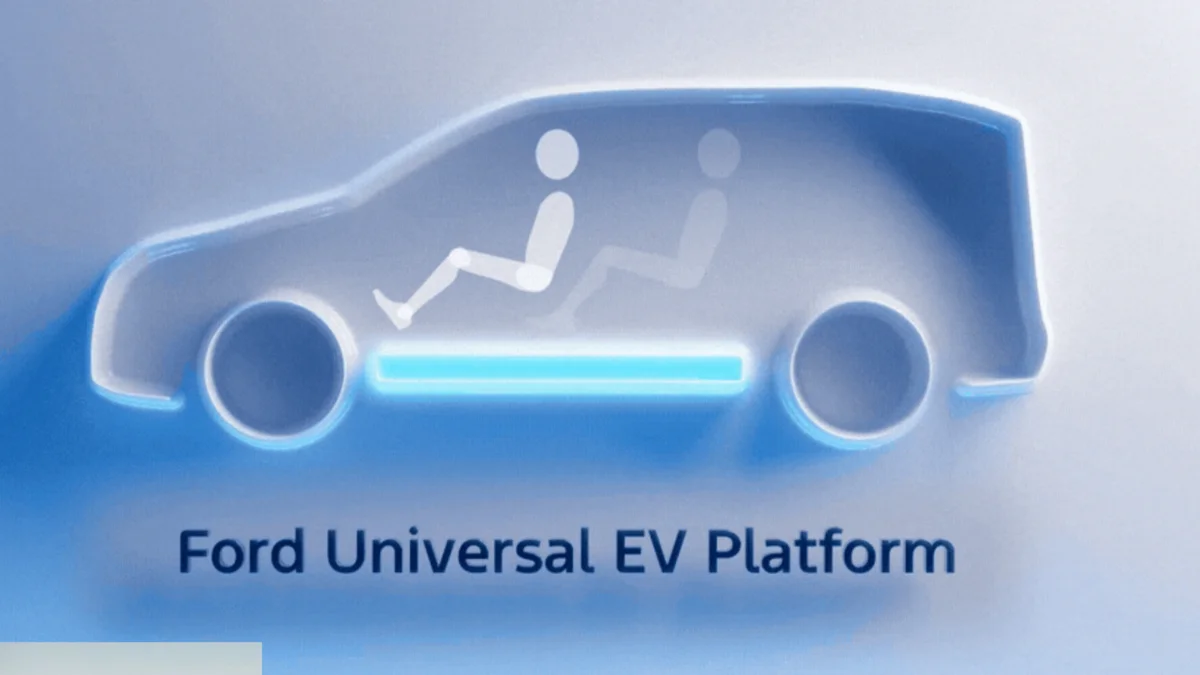Necessary Always Active
Necessary cookies are required to enable the basic features of this site, such as providing secure log-in or adjusting your consent preferences. These cookies do not store any personally identifiable data.
|
||||||
|
||||||
|
||||||
|

Ford revealed its EV truck breakthrough during a major announcement that could reshape the electric vehicle market. According to The Verge, Ford says it will start making a range of affordable electric vehicles at its Kentucky plant, beginning in 2027 with a four-door midsized pickup truck priced at $30,000.
The company is calling this its “Model T moment,” hoping a simpler production process will lower costs and help it make a profit. The announcement comes as Ford expects to lose more than $5 billion this year on its EV and software business.
CEO Jim Farley says Ford has a ‘Model T moment’ coming in the EV marketplace as it announced EV technology in the Model T. Just as the original Model T made cars affordable for regular families, Ford’s new approach aims to make electric vehicles affordable for average consumers.
The comparison to Henry Ford’s original breakthrough is intentional. Ford wants to repeat the same mass-market success that made the company famous over a century ago. This time, the focus is on electric power instead of gasoline engines.
Doug Field, Ford’s chief EV, digital and design officer, said in a briefing on Monday, “This is a bold and difficult undertaking to compete with the best in the world. We started with a blank sheet to fight complexity and do something truly new.”
Ford has developed what executives call the assembly tree process, a completely new way to build electric vehicles. This innovative manufacturing method reduces production costs significantly while maintaining quality standards.
The new process streamlines how vehicles move through the factory. Instead of traditional assembly line methods, Ford’s approach allows for flexible and efficient production. This flexibility helps reduce waste and speeds up manufacturing times.
Ford’s new universal EV platform represents the foundation of this breakthrough. Ford claims its new midsize EV pickup will have a lower cost of ownership than a Tesla Model Y, making it an attractive option for budget-conscious buyers.
The universal platform allows Ford to use the same basic structure for multiple vehicle types. This approach reduces development costs and manufacturing complexity. By sharing components across different models, Ford can achieve better economies of scale.
Ford explained how it will build its new modular “universal” platform for upcoming low-cost EVs. The design uses fewer parts, fewer fasteners, and fewer workstations, making assembly about 15% faster than traditional methods. The simpler setup should also mean lower ownership costs over five years compared to a three-year-old Tesla Model Y.
The vehicles will also be less complex. For example, the new midsized truck will have a much simpler electrical system, with a wiring harness that’s 4,000 feet shorter and 10 kilograms lighter than the one in the first-gen Mustang Mach-E.
Ford’s affordable EV truck initiative directly challenges Chinese automakers who have dominated the low-cost electric vehicle space. Ford announced it will retool its Louisville Assembly Plant to focus on electric trucks. Its goal: to bring down prices for U.S. buyers and compete with Chinese EV makers on the global market.
Ford recognizes that price remains the biggest barrier for most American consumers considering electric vehicles. The company’s breakthrough process specifically addresses this challenge by reducing manufacturing costs without sacrificing quality or performance.